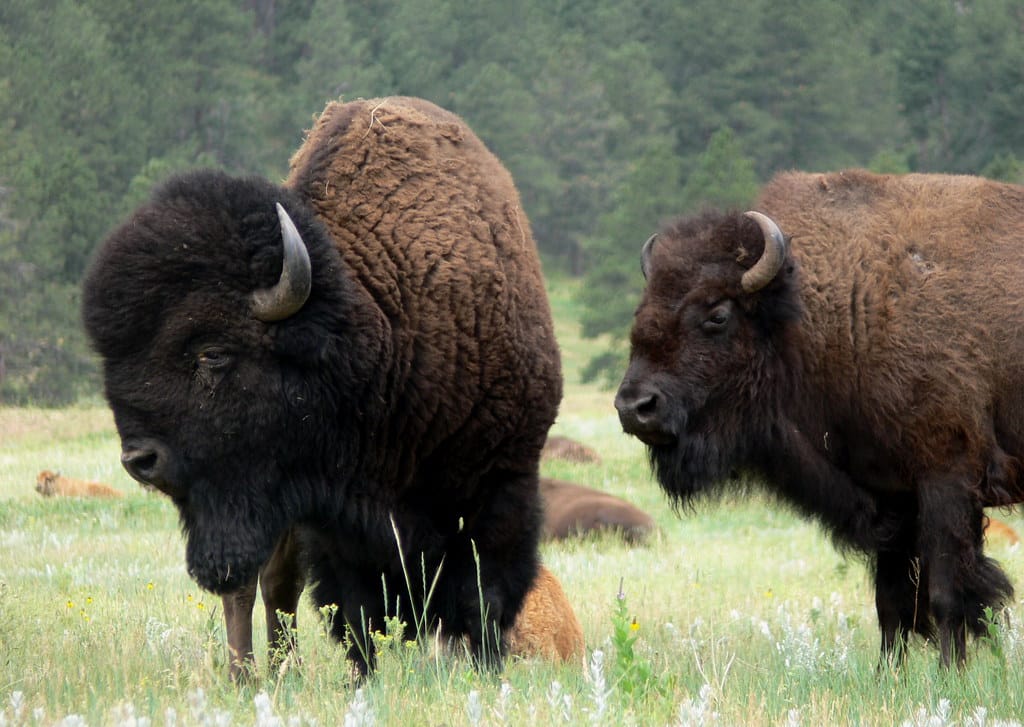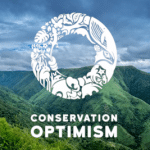Wondering what went right this week in the conservation world? We’ve got you covered with our Conservation Optimism Round-Up! Each week we are collating stories of optimism from around the globe so that you never miss your dose of Monday Motivation.
1. Technology and tradition team up to watch over a sacred island’s sea turtles
“Uninhabited Poilão Island in Guinea-Bissau is Africa’s most important nesting ground for green sea turtles (Chelonia mydas). Local people have long regarded the island as sacred and have limited access to it, which has kept its environment in a near-pristine state. The island is now protected as part of a marine national park, a compromise in which local people granted researchers and some other outsiders access to the island in an exchange that included employment monitoring turtles. Researchers and local people now work together to study the turtles with the aim of better protecting them.“
Technology and tradition team up to watch over a sacred island’s sea turtles. https://t.co/orNHZMmJMu #conservationoptimism
— InternetOfElephants (@ioelephants) November 22, 2021
2. Australia’s most endangered reptile given massive boost
“The long-term survival of WA’s critically endangered western swamp tortoise has been boosted by a record number of hatchlings successfully being born at Perth Zoo. Environment Minister Amber-Jade Sanderson on Monday revealed Perth Zoo had successfully bred 65 hatchlings this season — the program’s highest on record. Another 73 western swamp tortoises — bred at the zoo — have also recently been released into the wild by Department of Biodiversity, Conversation and Attractions officers as well as University of WA researchers.”
There has been a record year of hatchlings at Perth Zoo of the western swamp tortoise. #Herpetology #Reptiles #Conservation #ConservationOptimismhttps://t.co/NkNDMHB4D6
— British Herpetological Society (@BritishHerpSoc) November 22, 2021
3. How the return of bison connects travellers with Native cultures
“From Montana to Alberta, Indigenous communities are developing ecotourism tied to the keystone species’ restoration”
#ConservationOptimism https://t.co/HbiWXDGejL
— Erle Ellis (艾尔青) (@erleellis) November 21, 2021
4. CONSERVATION SUCCESS IN NEPAL: TIGER POPULATION NEARLY DOUBLED
“Where there were only 121 wild tigers left in 2009, the latest survey performed in 2018 shows that that number has risen to around 235 wild tigers nowadays.”
The tiger population in Nepal nearly doubled over the last 10 years. 💯#tiger #animals #wildlife #conservation #conservationoptimism #goodnews #nepal #optimism #positivenews #nature #tigers #animalbehaviourfacts https://t.co/U3G1HeU2du
— animalbehaviourfacts (@animalbehaviou3) November 18, 2021
5. EU aims to curb deforestation with beef and coffee import ban
“Beef, palm oil, cocoa and other products linked to deforestation will be banned from entering the European Union under landmark legal proposals that attempt to help prevent the felling of the world’s great forests.”
Good step in the right direction! #conservationoptimism https://t.co/Stf6wmb55n
— Clare Simm (@claraesse) November 17, 2021
6. Why the fate of snow leopards lies in the hands of local communities in Asia
“Snow leopards are among the most vulnerable species in the world. To locate and protect them, Alexander and her team set up a network of ecologists in countries such as Mongolia, Pakistan, China and Nepal. To prevent farmers in India from killing snow leopards who hunt their livestock, they established grazing-free habitats for the regeneration of their prey. In Kyrgyzstan, rangers are trained in anti-poaching and wildlife monitoring. With the trust, Alexander also lobbies for policy formation and public awareness at an international level.”
Thank you @BeautifulNewsSA for featuring @snowleopards and highlighting the need to protect the #snowleopard in partnership with communities that share its habitat.https://t.co/7qixcYR5pc#conservationoptimism #snowleopardhope pic.twitter.com/h3zLzj1d9I
— JustineShanti (@SnowLeopardHope) November 17, 2021
7. A few days ago in the mountains of Ecuador a large international team of botanists rediscovered Gasteranthus extinctus, thought to be extinct for 30 years
“The team found it through returning to the Centinela ridge in Ecuador and specifically the last remnant patches of old growth forest searching top to bottom for luminescent orange flowers “
Big plant news!🌿 A few days ago in the mountains of coastal #Ecuador a large international team of #botanists rediscovered #Gasteranthus extinctus, thought to be extinct for 30 years. #floradelecuador #extinction #conservationoptimism
— Nigel Pitman (@PitmanNigel) November 16, 2021
1/7 pic.twitter.com/WmXTA70kcX
Have a story to share for our weekly round-up? Use #ConservationOptimism on Twitter, Facebook, LinkedIn and Instagram!


